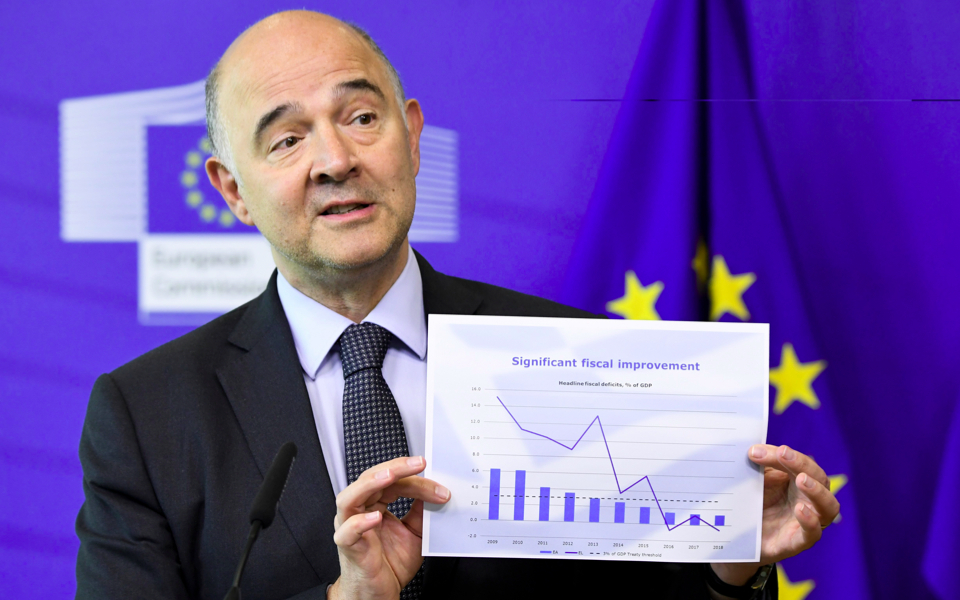Greece to exit EU’s excessive deficit procedure

After eight years, Greece emerged on Wednesday from the European Commission’s process for countries with excessive deficit.
The Commission proposed Greece’s exit from the process as its general government debt has dropped below the threshold of 3 percent of gross domestic product. This is a largely symbolic move, but it does have some significance given that the government is planning to return to the bond markets for the first time since 2014.
Economic Affairs Commissioner Pierre Moscovici gave a wink to the markets on Wednesday, saying that the disbursement of the tranche of 7.7 billion euros on Monday and the decision on the deficit is “good news that the markets ought to read,” even though he explained that what the investors do is not up to him.
Commission Vice President Valdis Dombrovskis called on Greece to capitalize on its achievements and continue to strengthen confidence in its economy, which is crucial as the country prepares its return to the credit markets.
The Commission’s proposal for Greece’s emergence from the deficit procedure has to be ratified by the EU’s finance ministers, but has little practical use. Ultimately, Greece’s fiscal targets are dictated by the bailout agreement and not by the rules that apply to other eurozone members. As one European official told Kathimerini, “nothing changes essentially, the fiscal targets Greece must hit remain high and [yesterday’s] decision is only of a symbolic dimension.”
If Greece does emerge from the excessive deficit process, just three EU member-states will still be in it (Spain, France and the UK), down from 24 in 2011.
Kathimerini asked Moscovici whether the Greek emergence from the process is a success that should be attributed to the previous government, led by Antonis Samaras, as Greece would have exited the process from 2015 had it not been for the disastrous first half of that year. The Commissioner responded that after July 2015, “the effort became more efficient than ever, but we should not ignore the efforts by previous governments. It is the Greek people we should thank.”





